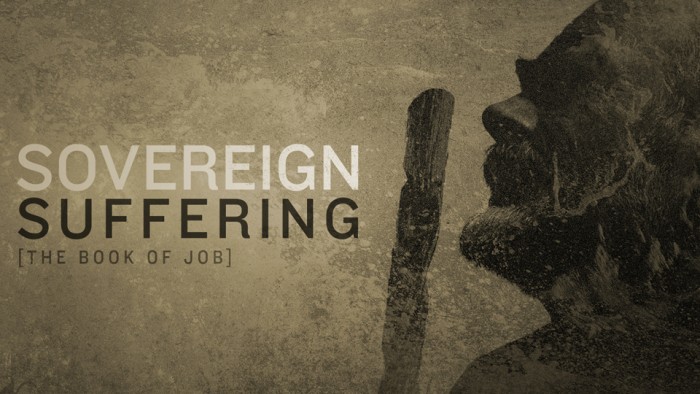In Job 40:15-41:34 God challenges Job to a wrestling match with two beasts: Behemoth and Leviathan.
Regardless of the actually identity of both beasts (I happen to think Behemoth is a hippo and Leviathan a symbolic sea creature of evil), the purpose of the challenges is clear: God alone can defeat the powers of death and destruction. You can’t do it, I can’t do it, Job can’t do it, but God can. Psalm 104 even tells us that God created this sea monster to “frolic” before him in the remote regions of the ocean rarely sailed upon by human. To the weakness of Job the sea monster is the embodiment of terror, but to almighty God leviathan is just a playful animal in his ocean pool.
FAILING THE TEST OF SOVEREIGNTY
God’s second speech from the whirlwind makes Job consider two overarching questions: “Can you reign in sovereign authority? Rule in sovereign victory?” The answer clearly is, “No, Job, you can’t. But I can and I do.” It’s almost as though God has sat Job down in His whirlwind classroom and given him a standardized test of sovereignty: “Do you know this? Can you do that? Have you seen this? Can you conquer that?” And at each point Job has failed the test, and in our text particularly, he has failed the test of justice and strength.
And we have all failed God’s test. We have tried to be the sovereign over our lives, but our sin only shows our weakness foolishness. The path of sin is the path of self-sovereignty and it’s a path that leads to death. If you are in here tonight and are not a Christian, I want you to see the terrifying power of sin, it’s a monster that you cannot defeat. No amount of effort, goo, or individual strength will cause sin to submit to you. But the good news of Jesus Christ, the gospel, is that God has overcome our failures and beaten sin. He did that by sending His Son Jesus Christ to be born of a virgin, to live in perfect obedience, to die on a cross in the place of sinners, and three days later He rose again. If you would turn from your sin and trust Jesus’ sin-slaying, death-defeating work, everlasting joy and life is yours in Christ.
God has asked Job if he can reign from authority and rule in victory, and now the question at the beginning of chapter 42 is, “Will you respond in simple humility?”
SIMPLE HUMILITY
Look at 42:1-6,
Then Job answered the Lord and said:
2 “I know that you can do all things,
and that no purpose of yours can be thwarted.
3 ‘Who is this that hides counsel without knowledge?’
Therefore I have uttered what I did not understand,
things too wonderful for me, which I did not know.
4 ‘Hear, and I will speak;
I will question you, and you make it known to me.’
5 I had heard of you by the hearing of the ear,
but now my eye sees you;
6 therefore I despise myself,
and repent in dust and ashes.”
If you were to go out to a wheat field during harvest time you’d notice some heads stand up taller than the rest. It’s only those heads that are most mature and well-filled that bend low to the ground, and only the empty heads stand up tall.
God’s whirlwind has filled Job with a true understanding of God and he is brought low in humble repentance; he is nothing compared to this God. How will you respond to this encounter with the God of the whirlwind? It is wise for us to think about the fullness of what we’ve seen from God’s sermon in the storm by mentioning two implications from our text.
FROM COMPLAINT TO CONTENTMENT
First, the problem of complaint at God’s sovereignty. Job wanted God to show up and vindicate him as an innocent suffering and explain why he’s made to suffer so deeply for nothing he’s done. Like Job, our complaints suggest we are wiser than God. And that is a problem God will always answer in some way; Job complains and gets a whirlwind rebuke. God shows up, but there is no explanation why or justification for His sovereign dealings in Job’s suffering. Instead there is a thunderous interrogation with the main thrust of, “Listen and look at my unfathomable greatness!” The complaints of man never further the glory of God. Where in your life right now might you be prone to complaint at God’s sovereignty? Maybe like Job, more than you need to understand God’s sovereignty in your life you need to hear God’s sovereignty over your life?
Second, the power of contentment in God’s sovereignty. Job’s overwhelming encounter with God moves him from spoken complaints at his suffering to silent contentment in His suffering. Here’s why I say contentment: what we see from chapter 42 is that Job is willing to lose everything, to suffer, and to die even without any hope of vindication. But he is not willing to give up on the God who has come to him in sovereign grace. What powerful contentment awaits those who see and submit to God’s sovereign care. Will you complain at or cling to God’s sovereignty over your suffering?
Job will never speak again, but oh how his silence shouts to us – and the kingdom of darkness! Job’s hush is the declaration of God’s supreme worth. Satan said way back in chapter one, “God you are not worth worshiping if people get nothing from you? If Job only gets pain, he will curse you.” Job gets nothing but His sovereign God and it is enough. Surrender to God’s sovereignty will keep you steadfast in suffering.
This post is adapted from my recent sermon, “The Sovereign Speaks Again.”

